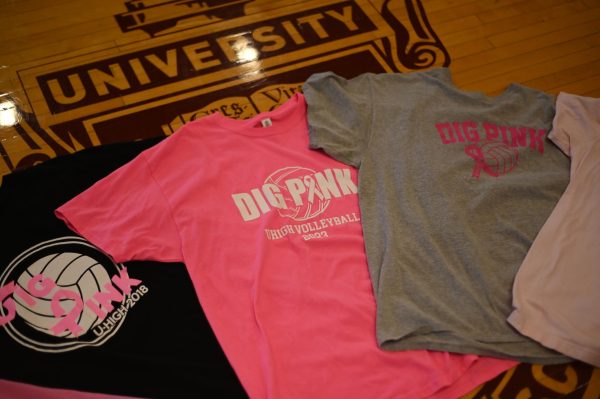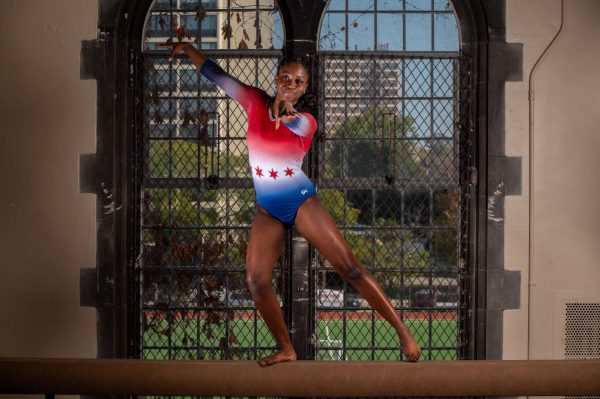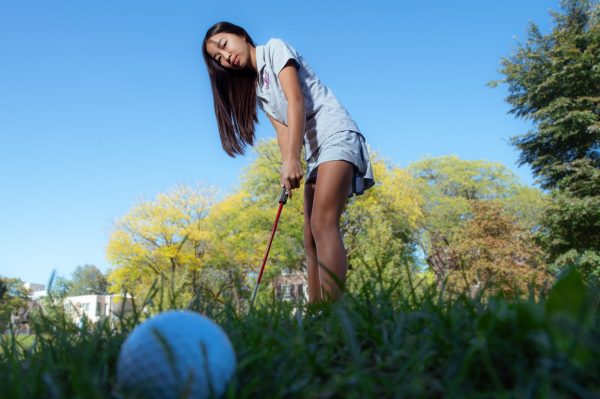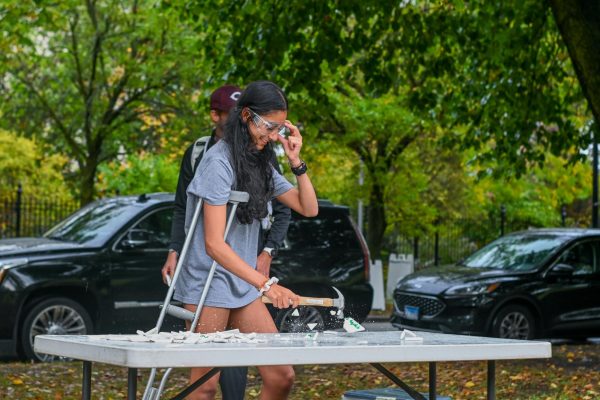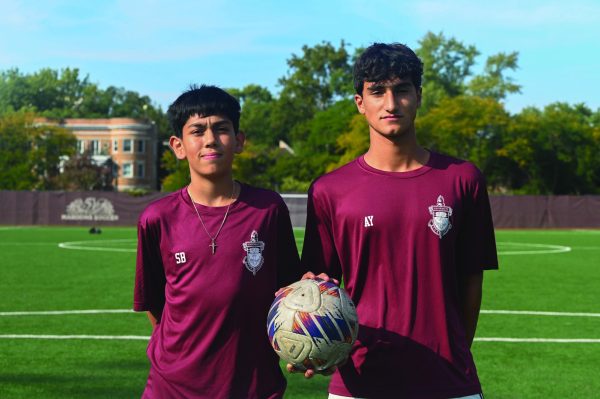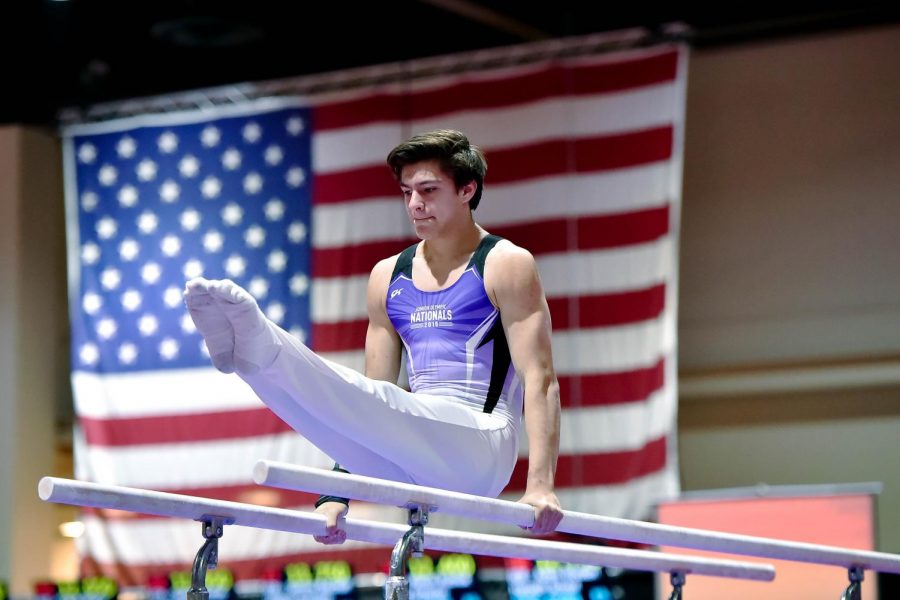Despite hardships, student athletes continue their sport with passion
Photo provided by Sebastian Ingersoll
SOAR. Gymnast Sebastian Ingersoll, U-High senior, competes on the parallel bars at a national competition.
Before presenting his baseball abilities to flocks of coaches in a showcase— a rite of passage for aspiring college athletes — Julian Skosey-Lalonde was, to put it lightly, nervous.
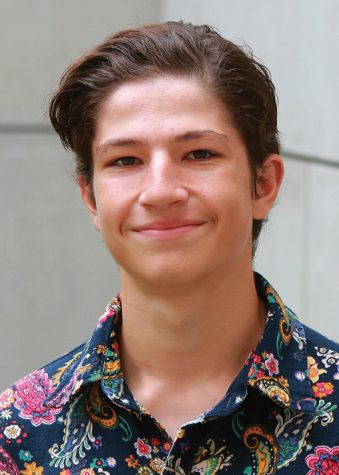
“The morning you wake up for that showcase is one of the worst moments of your life,” said Julian, who will join the baseball team at Cornell College in Iowa in the fall. “You’re trying out in front of 60 or more coaches for 5-10 hours with only five or six minutes of personal time in the middle. The workouts are hard, you have a combination of regular and baseball-specific movements, but the worst part is you sweat bullets—not just from the workouts themselves, but also the pressure.”
Such trying workouts must be etched into the everyday life of these student athletes. Despite these arduous workouts and long hours, student athletes are driven by a deep passion, often connected to childhood experiences.
“My connection to baseball probably comes from when I was extremely young and played catch with my dad. Since then I’ve felt connected to the sport,” Julian said.
Sebastian Ingersoll, a gymnast who will compete next year for the NCAA Division I University of Illinois at Urbana-Champaign, also has an intense training schedule.
“I work out about six days a week, probably at least three to three and a half hours a day,” Sebastian said.
Fencer Sarah Lurye similarly works out five days a week for three hours to stay in shape before she begins competing for Duke University, another Division I school, in the fall.
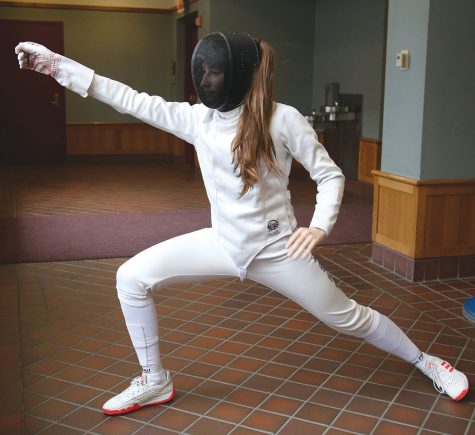
READY TO SPAR. Sarah Lurye practices her fencing stance. Sarah has been fencing with Windy City Fencing for eight years, and is ranked sixth in the nation for fencers under age 17. Her fencing career, under normal circumstances, takes her around the world.
“The commitment can be difficult at times,” she said, “but when you genuinely enjoy what you are doing, it doesn’t really feel like work.”
For these three students, their sport was the most influential factor on deciding where to attend college.
“When I first visited Cornell College, and in my showcase, I just knew it was the place for me,” Julian said. “The coaches were friendly, easy to get along with, and they were people who I would normally want to hang out with.”
Normal training sessions and preparations for the upcoming season have been disrupted by the COVID-19 pandemic for these student athletes.
“In place of normal in-person training sessions, we are doing Zoom calls five days a week, where we exercise and analyze fencing videos,” Sarah said. “It’s definitely not as great as training in the club, and initially I was very defeated. Then I realized that it’s a great time to prepare, conditioning-wise and build and improve cardio.”
For Sebastian, an inability to access proper gymnastic equipment and train in-person will set him back significantly.
“Whereas normally I would exercise heavily over the summer and really boost my performance next season, now I’m mostly doing conditioning and strength workouts without any equipment,” he said. “It could take me up to a month to get back to where I am now.”
While this can be demoralizing for these athletes who have put everything on the line to get to where they are, they understand that they have to keep going.
“This will affect my season, but it’s also affecting everyone’s seasons,” Sebastian said. “So next year you just gotta get back up to where you were and then get much better than that.”



